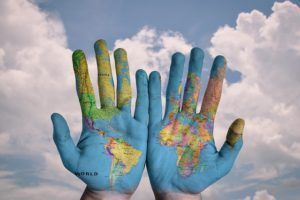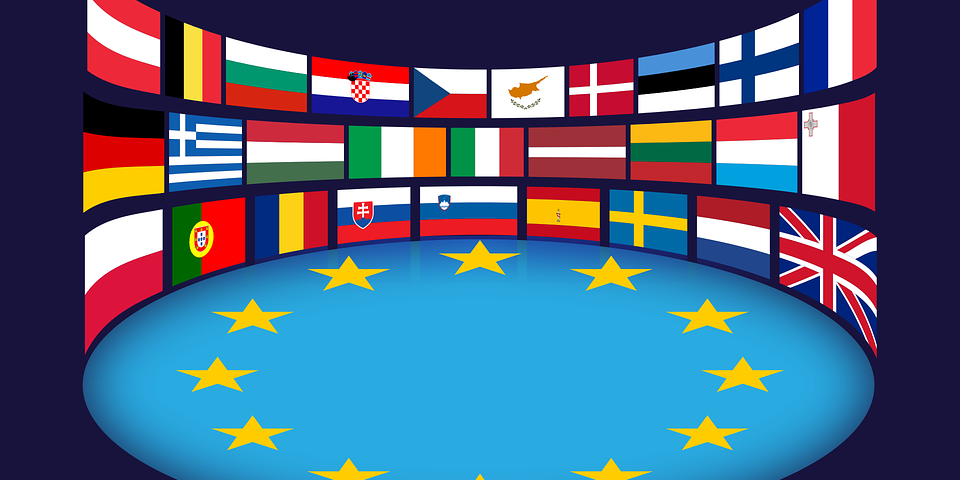Introduction
The 21st century appears to be marked by the effacement of the east and west. Technology has transcended many aspects of human lives that geographic distance among countries no longer matters. The internet and media have been instrumental in bridging relationships between people of all nations. Its reach and accessibility have crossed borders and have more closely and independently influenced people. These communication technologies have expanded and accelerated global connectivity (Tomlinson, 2007, p. 352). Also, international travel has made possible the connections among countries and has facilitated social, cultural, economic and political influences. Faster and more efficient modes of transportation have provided opportunities for increased exchanges among countries.
Towards increased globalization, interconnections and interdependencies have quickly developed and have become deep as these have become the way of life in the modern world (Tomlinson, 2007, p. 352). This paper provides the various ways in which the cultural, economic and political factors are interrelated across the world.
Cultural Globalization
Cultures are increasingly diffused across the world. This is manifested by examining a few of the elements of culture – language, music, arts, and cuisine. In today’s extended social relations brought about by social media, the need and the interest to learn foreign languages have increasingly become more important. English as spoken by 83 countries around the world (Nations Online, 2016) is obviously more popular. A search for Teaching English as a Second Language (TESL) or Teaching English as a Foreign Language (TEFL) results in more than 1.6 million web pages (Yahoo, 27 December 2016). Additionally, the search for English online tutorial businesses results in more than 33 million web pages. This is an indication of the need for better understanding and the ability to communicate across the world.
In the field of music, online music stores like those of iTunes and Spotify reach millions of users across the globe. Taste or preference for music is getting wider and more varied as access to it is easier through digital technology. Spotify, for instance, has 75 million users spread in 58 countries (Kosoff, 2016, par. 1). The International Federation of the Phonographic Industry (IFPI) listed the United States and Japan as the two largest music markets in the world in 2014 where sales comprised of both foreign and local artists. Meanwhile, Korean pop music, popularly called K-Pop, has reached popularity across the world as concerts in Europe and the United States grew, as well as the number of fans (Sang-Hun & Russell, 2012, par. 14).
 In the arts, particularly in film, the New York Film Academy (2015) listed in its website countries across continents holding international film festivals.The appreciation for foreign films has also increased. In 2015 alone, at the 68th Cannes Film Festival in France, there were 4,550 entries, including entries from Asia, Europe, Latin America and Oceania (Festival de Cannes, 2015).
In the arts, particularly in film, the New York Film Academy (2015) listed in its website countries across continents holding international film festivals.The appreciation for foreign films has also increased. In 2015 alone, at the 68th Cannes Film Festival in France, there were 4,550 entries, including entries from Asia, Europe, Latin America and Oceania (Festival de Cannes, 2015).
Lastly, the cuisine has been a highly visible cultural element worldwide. American fast food chains like McDonald’s, KFC, Pizza Hut and Carl’s Jr. among others have also entered international markets.In 2013, for McDonald’s, there were 34,492 restaurants in 116 countries (Chalabi & Burn-Murdoch, 2013, par. 1).In the meantime, there is a Chinatown in every major city in the world (Ostheimer, 2012, par. 1).
All these elements, with their examples, signify proof that culture is diffused worldwide and that people increasingly have integrated into their lives foreign cultures harmoniously merged with their own. More importantly, economic and political policies work within the cultural realm as culture pervades people’s lives. Economic and political policies provide for the availability of these cultural forms as the government should recognize people’s democracy and interests.
Economic Integration
The political connection to economic incentives is obvious. Governments recognize that the ‘global economy’ depicts the interdependencies of markets. International trade has proven to provide local economies with benefits (Economy Watch, 2010, par. 1). Among these advantages include the enhancement of local competitiveness. Local governments allow the entry of foreign goods to spice up the competition, making local producers improve their products’ quality.
 International trade also helps stabilize seasonal market fluctuations. Businesses are able to sustain operations by tapping other markets abroad or seek for suppliers internationally. Related to this, the dependence on existing markets is also reduced. The exploration of international markets provides businesses increased opportunities for growth. With the widening scope and increasing complexities of international trade, more and more governments realize the need for economic cooperation and the need for treatises.
International trade also helps stabilize seasonal market fluctuations. Businesses are able to sustain operations by tapping other markets abroad or seek for suppliers internationally. Related to this, the dependence on existing markets is also reduced. The exploration of international markets provides businesses increased opportunities for growth. With the widening scope and increasing complexities of international trade, more and more governments realize the need for economic cooperation and the need for treatises.
There is the Organization for Economic Cooperation and Development (OECD), where 35 countries join forces to promote economic and social policies and provide for improvement in these areas (OECD, 2016, par. 1). There are also regional organizations that aspire to promote and to strengthen economic relationships, aside from political cooperation, like the Association of South East Asian Nations (ASEAN), the Black Sea Economic Cooperation (BSEC), and the Gulf Cooperation Council (GCC).
A search at the United Nations Treaty Collection (2016) lists 1,554 results containing economic issues. This signifies that countries across the world find interest in establishing economic interconnections with other countries. Although research has indicated a negative impact of international trade, the volume of global trade shows that many countries recognize that engaging in international exchanges provides their countries many advantages.
Meanwhile, economic incentives can be established within cultural elements. Governments build upon people’s needs and interests to grow the economy.
Political partnerships
Usually, developing countries seek assistance from more developed countries. In the research by Alesina and Dollar (1998), foreign aid is provided based on political alliances and strategic considerations. This study indicated that the United States, for example, donated to Egypt and Israel in the interests of democracy and openness, aside from poverty; while Japan’s and France’s donations to their former colonies have little association with democracy and poverty. As the saying goes – “two heads are better than one,” the benefits of coalition provide for reasons why countries form political alliances, which were purported to be greater than the costs of not joining.
Spangler (2003, par. 7) explained that countries, those which have greater power or influence over others, can threaten negative repercussions for those who do not join them. This was elaborated in this article with the United States offering financial aid and political benefits to the nations which joined its alliance against Iraq in 2003. Cultural interests provide an indirect means for establishing political alliances. Appreciation of culture, travel and tourism are ways of encouraging the economy.
Conclusion
Cultural, economic and political factors have become increasingly interrelated as the global economy has motivated governments to establish alliances. Political and economic strategies may have initiated these ties as these two factors are unavoidably interrelated. Countries involved in the global economy as there are political as well as economic benefits.
On the other hand, cultural factors become the avenue by which economic interests are built upon. When these cultural elements are provided by the economy, political interests are also promoted.
References
Alesina, A and Dollar, D (2000). Who gives foreign aid to whom and why?.Journal of Economic Growth 5(1): 33-63. Available at:
https://dash.harvard.edu/bitstream/handle/1/4553020/alesina_whogives.pdf. (accessed 26 December 2016).
Chalabi, M and Burn-Murdoch, M (2013).McDonald’s 34,392 restaurants: where are they? The Guardian. Available at: https://www.theguardian.com/news/datablog/2013/jul/17/mcdonalds-restaurants-where-are-they. (accessed 26 December 2016).
Economy Watch (2010). Benefits of international trade. Available at:
http://www.economywatch.com/international-trade/benefit.html. (accessed 26 December 2016).
Festival de Cannes (2015). The short films selection at the 68th Festival de Cannes. Available at:
http://www.festival-cannes.fr/en/article/61305.html. (accessed 26 December 2016).
IFPI (2014). Digital music report 2014. Available at:
http://www.ifpi.org/downloads/Digital-Music-Report-2014.pdf. (accessed 26 December 2016).
Kosoff, M (2016). Spotify has gobs of data about its 75 million users thanks to ‘selfie culture’. Business Insider. Available at:
http://www.businessinsider.com/spotify-user-data-2016-1. (accessed 26 December 2016).
Nations online (2016). Countries and languages. Available at:
http://www.nationsonline.org/oneworld/countries_by_languages.htm. (accessed 26 December 2016).
New York Film Academy (2015). The most comprehensive list of film festivals on the internet. Available at:
https://www.nyfa.edu/student-resources/film-festivals/. (accessed 26 December 2016).
OECD (2016). About the OECD. Available at:
http://www.oecd.org/about/. (accessed 26 December 2016).
Ostheimer, S (2012). World’s best Chinatowns. CNN Travel. Available at:
http://travel.cnn.com/explorations/escape/worlds-best-chinatowns-324704/. (accessed 26 December 2016).
Sang-hun C and Russel, M (2012). Bringing K-pop to the west. New York Times. Available at:
http://www.nytimes.com/2012/03/05/business/global/using-social-media-to-bring-korean-pop-music-to-the-west.html. (accessed 26 December 2016).
Spangler, B (2003). Coalition building. Intractability. Available at:
http://www.beyondintractability.org/essay/coalition-building. (accessed 26 December 2016).
Tomlinson, J (2007). ‘Cultural Globalization’. The Blackwell Companion to Globalization. Ritzer, G. ed. USA: Blackwell Publishing. Available at:
http://s3.amazonaws.com/academia.edu.documents/34525935/_George_Ritzer__The_Blackwell_companion_to_globaliBookFi.org.pdf?AWSAccessKeyId=AKIAJ56TQJRTWSMTNPEA&Expires=1482845980&Signature=If3%2FPoz2ck1BqaO7X5AyyhLUhiE%3D&response-content-disposition=inline%3B%20filename%3DThe_Blackwell_Companion_to_Globalization.pdf#page=369. (accessed 26 December 2016)
United Nations. (2016). Search results for economic treatises. Available at:
https://search.un.org/results.php?query=economic%20treatises&fq=url%3A%28%22treaties.un.org%22%29&tpl=un&lang=en. (accessed 26 December 2016)
Yahoo (2016). Search results for TESL TEFL. Available at: https://ph.search.yahoo.com/yhs/search?hspart=arh&hsimp=yhs-001&type=xy_dc958702¶m1=ArFaIWJoNqArQGMVIDImAHFbMnMqQGMVxTtoNqAdBHFaIUoeATVoNqAqAXFaIWQBvmE4ICILNopcGWUIvmE4IWYUvmo9JGYYwVRdJGYYvmo3vCIYNVM3vCIXvFFdICILNVJdESk8NUM9J6oWwVI4ISILNFdbDSk8wVU9ImIXwVI9ImIVwVA9ISILNFdcJ6k8NoFcFGUMwVQ9JmITwVM9ImIVwV5cGWUSNFRcEqULNopcGWUIvmFbF6oVvFRdJCk3vFFdJmIYvFQ9I6IWwVVdISIXwVxdICIVwVRdISISvFNdJ6IWvFQ9IaYTNVVdIqYYwVRdIWYXNVI3vCoUNVE3vGQIwV5cGGUTNFRbDqUDNF5bDGUNNEU3wGQGvFM3vqYUvmo9JmoVwVQ4ICISvFE9JGYVvFE9I6oUwVQ3vqYTwVxdJqYYwVJdICISNVRdICIXvmldJmoXNVA4ICoWvmo9ISoXNoU9GqYYNVc3wCoUQGR7B6RoN9JbMqFbNqRaMqNoNqAsQGMVvDIlC6MuNGAuNqUuy6QmyndoNqAex807ACRoN9JcNX5dQGR7y6NoN9ICzD4py6waQGQXNGZoNpQRy78oQGQXF7ofA7coQGQXGTUfA6EsA7F%3D¶m2=LGVbLWR8NWF8&p=TESL+TEFL. (accessed 27 December 2016)
Want something like this? Visit us at www.wedoyouressay.com for more information.







